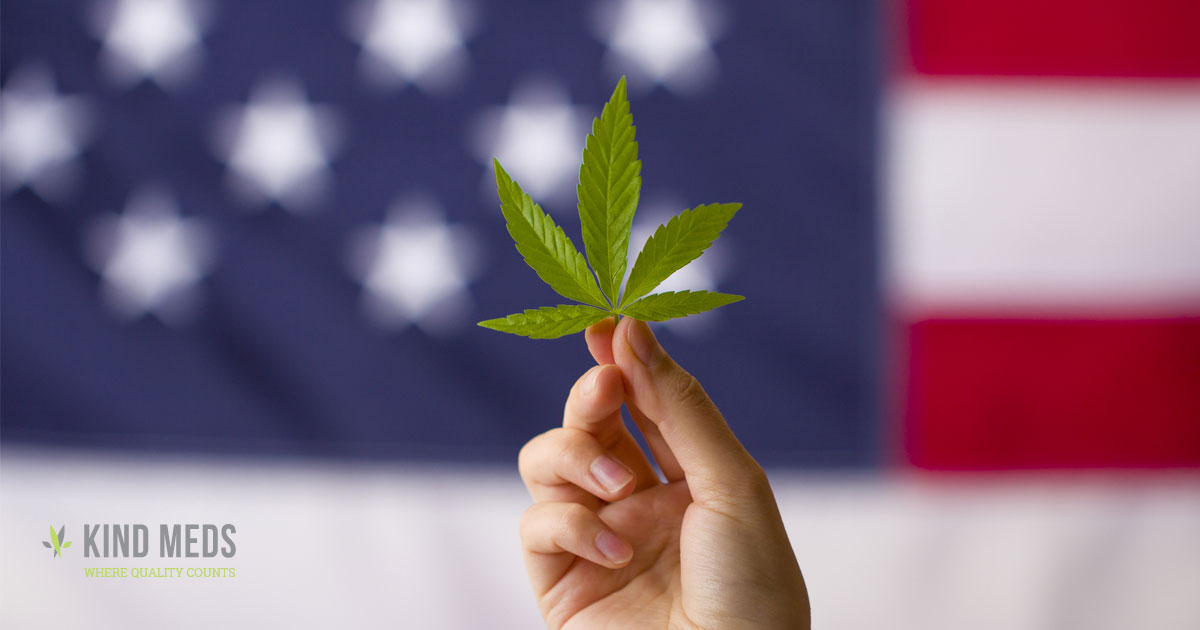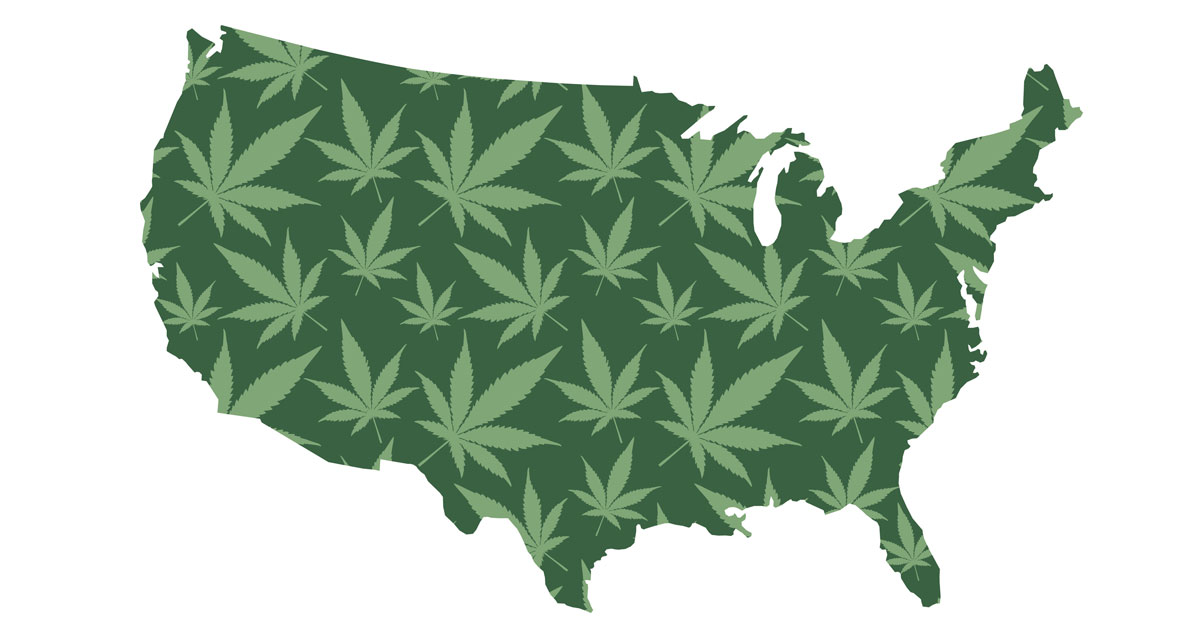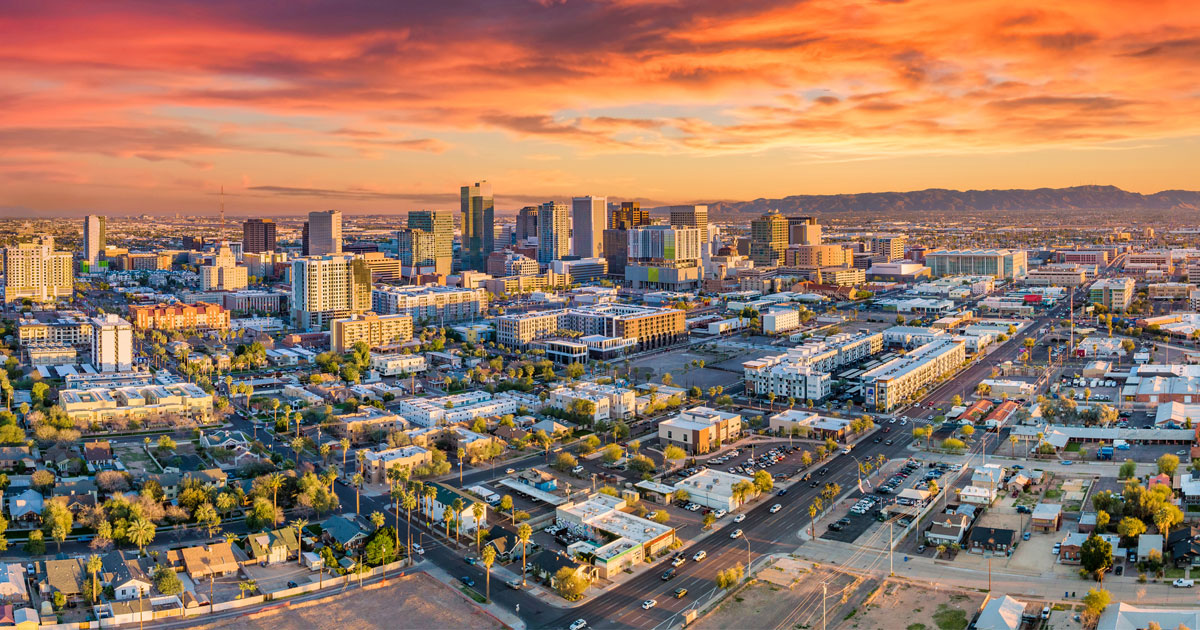Arizona’s View on Cannabis
Written by Chris Weatherall on Jan 27, 2023

What’s Arizona’s view on cannabis? Public opinion on cannabis in the United States has undergone a significant shift in recent years, becoming increasingly more favorable. This lies in stark contrast to many parts of the 19th and 20th centuries when cannabis was widely viewed as a dangerous and addictive drug with no medicinal value. This perception was reinforced by government campaigns like the “War on Drugs,” which targeted cannabis in addition to other drugs like heroin and cocaine. As a result, many people associated cannabis use with criminal activity and moral decay.
Clearly, public opinion has changed here in Arizona, where cannabis is now legal for both medicinal and adult recreational use. Medical cannabis was approved in 2010 and implemented in 2012 and experienced regular month-over-month increases in sales volumes until 2021. That was likely because recreational cannabis, approved by Arizona voters in 2020, has overtaken medical sales. In fact, sales at Arizona dispensaries topped $1 billion in 2022.
However, stigma still exists. Although nineteen states and the District of Columbia have already approved recreational cannabis and five states (Arkansas, North Dakota, Maryland, Missouri, and South Dakota) had cannabis measures on the ballot this past election season, only Missouri and Maryland passed recreational cannabis measures. How does the rest of the country feel about cannabis? Why haven’t we seen more widespread approval by the remaining states? Let’s explore cannabis attitudes in America.
Does Arizona’s Views on Cannabis Reflect America?
While cannabis was once demonized as “loco weed,” thanks to sensationalized stories from US and Mexican press that were likely about another plant entirely, attitudes towards cannabis began to change in the late 20th century. That’s when scientific research began to officially recognize the potential medical benefits of the plant.
This was coupled with a growing movement to legalize cannabis for medical use. In 1996, California became the first state to legalize cannabis for medical use, and since then, more than 35 states have passed similar laws. In recent years, more and more people have accepted the viewpoint of cannabis as a viable alternative to traditional prescription drugs for treating a variety of conditions, including chronic pain, anxiety, PTSD, and other ailments.
Cannabis trends continued to shift as several states legalized cannabis for recreational use, starting with Colorado and Washington in 2012. As a result of these changes, a majority of Americans now favor the legalization of cannabis. This shift in perception was aided by the fact that legalization has been successful in generating revenue for participating states. Many states also experienced decreasing crime rates, measures which have influenced people to view cannabis as a less harmful—and even helpful—substance.
Unfortunately, it’s important to note that despite changes in legal status in the various states, marijuana remains illegal under federal law. Possession or distribution can still lead to criminal charges.
Cannabis Measuring Points

Let’s look at the way the population of the US as a collective views cannabis with a few key measuring points.
How Many Americans Currently Use Cannabis?
In the United States, there are currently roughly 55 million adults that report using cannabis. This translates to about 16% of the total United States population. However, it’s important to note that this includes legal use in cannabis-friendly states as well as illegal use in other states.
What Percentage of Americans Support Legalization?
According to a recent survey conducted by the Pew Research Center, most US adults (88%) support the legalization of marijuana in some form. Specifically, 59% of respondents believe that marijuana should be legal for both medical and recreational use by adults, while 30% believe that it should only be legal for medical use. Just 10% of respondents believe that marijuana should not be legal at all.
These results are similar to those found in past surveys, which indicates that public opinion on the issue has remained stable or improved. This survey is a representation of an overall trend in the US, which is growing support for marijuana legalization in some form.
How Has Public Opinion Changed Over Time?
Public opinion on cannabis in Arizona is favorable, with most residents supporting the legalization of marijuana for both medical and recreational use. However, opinions may vary among different demographics, especially in other states across the US, and there may be more opposition to legalization elsewhere. This is especially apparent because Arizona was an early adopter of legalization compared to over half of the US.
Still, as indicated, most Americans support the legalization of cannabis for adult use. Opinions have improved over time since this majority was a significant increase from the 25% support recorded in the year 2000. As more and more states legalize cannabis and more research is conducted on the drug, the public’s perception of cannabis is likely to continue to change.
While there are still concerns in the remaining states about the long-term consequences of legalization, the growing acceptance of cannabis suggests that the tide is turning in favor of cannabis. It’s worth mentioning that the shift in public opinion is not limited to the United States, as other countries are also rethinking their cannabis policies and laws. Overall, over the last few decades, public opinion on cannabis has dropped much—but not all—of the stigma that overshadowed the potential benefits of cannabis use.
How Do Different Age Groups Feel About Marijuana?

Cannabis legalization is an issue that is viewed quite differently by various age groups. Generally, younger people tend to be more supportive of legalization efforts than older individuals—though there are certainly exceptions to this rule. A 2022 survey found that about two-thirds of adults under the age of 45 support the legalization of cannabis, while only about half of those over 45 do.
One theorized reason for this difference in opinion among age groups is that younger people have grown up in a society where cannabis is accepted as less harmful than in the past or even embraced as a therapeutic tool. They may also be more likely to see the potential benefits of legalization, including societal benefits as well as therapeutic and recreational uses.
Older individuals, on the other hand, may have been raised in an era where cannabis was heavily stigmatized and may be more likely to view it as a dangerous drug. They are often more likely to be concerned about the potential negative consequences of legalization, such as increased cannabis use in minors and the associated crime. However, the generational gap in opinions on cannabis legalization appears to be closing over time, as even older adults are becoming more accepting of cannabis use and younger adults are becoming more aware of potential consequences.
How Do Different Political Groups Feel About Marijuana?
The issue of cannabis legalization has traditionally been viewed quite differently by Democrats and Republicans. Historically, Democrats have been more likely to support legalization efforts, with many citing the economic benefits and the need to address issues of social justice related to the criminalization of cannabis. In recent years, a growing number of Democrats have come out in support of legalization, with some even calling for the complete decriminalization of cannabis.
Republicans have generally been more skeptical of legalization efforts. Some argue that legalizing cannabis would lead to increased drug use and crime, while others have concerns about the potential impact on public health. However, in recent years, some Republicans have begun to shift their position on the issue, with some advocating for the legalization of medical cannabis or supporting the rights of states to legalize cannabis if they so choose.
While there are some differences in how Democrats and Republicans view cannabis legalization, both parties have members who hold a variety of opinions on the issue. As such, it is important to consider the views of individual politicians and policymakers rather than making broad generalizations about the positions of entire parties.
What Are the Economic Impacts of Marijuana?
The economic impacts of cannabis are a complex and often-debated topic. On the one hand, legalizing cannabis has the potential to create jobs and stimulate economic growth in industries such as agriculture, retail, and manufacturing. This growth can also generate significant tax revenue for governments, which can be used to fund various public services and programs. Further, you’ll remember that at the top of this article, we mentioned the fact that Arizona cannabis topped $1 billion in sales in about ten years.
On the other hand, there may also be some negative economic impacts associated with cannabis use. For instance, some experts posit that cannabis use could lead to decreased productivity and increased healthcare costs. Additionally, the illegal market for cannabis may continue to operate in parallel to the legal market, which could impede the economic benefits of legalization.
Overall, the economic impacts of cannabis are multifaceted and depend on a variety of factors, such as the way the substance is regulated and the specific context in which it is being used. As such, it is important to consider both the potential benefits and drawbacks when evaluating the economic impacts of cannabis.
What Are the Societal Impacts of Marijuana?
Despite what some might believe, cannabis can have positive impacts on individuals and communities. For example, cannabis is commonly used for medical purposes to treat conditions such as chronic pain, and it has been shown to be effective in reducing symptoms for some individuals. Additionally, legalizing and regulating cannabis can lead to economic benefits, such as job creation and increased tax revenue, as well as reducing criminal justice costs associated with enforcing cannabis prohibition.
Arizona imposes a 16% tax on marijuana products, with the revenue being used to regulate the industry and enforce regulations. The remaining funds will be distributed among community colleges (33%), police and fire departments (31.4%), the state highway fund (25.4%), a justice reinvestment fund (10%), and the state attorney general’s office for enforcement (0.2%).
The legalization of cannabis also helps in reducing the impact of the black market and criminal enterprise. It can also help address racial discrimination in the criminal justice system, where minorities are disproportionately targeted for cannabis crimes. Overall, the societal impacts of cannabis use are complex and can be positive or negative depending on a few factors.
What Are the Known Health Benefits of Marijuana?
The health benefits of marijuana are vast, with research suggesting that the plant could have therapeutic potential for a variety of medical conditions. Cannabis has been found to help alleviate chronic pain, multiple sclerosis, and certain types of cancer. Additionally, cannabis may reduce stress, depression, and anxiety.
In terms of chronic pain relief, research has found that cannabis can provide significant relief from pain caused by conditions such as arthritis and fibromyalgia. Studies have also suggested that it can ease some symptoms of multiple sclerosis (MS) such as muscle spasms, tremors, and bladder control. It is believed that cannabis helps with MS because the compounds in the plant interact with the body’s endocannabinoid system which helps to regulate various bodily functions including appetite and pain perception.
Cannabis has also been linked to providing relief from certain types of cancer. Research has shown that THC can reduce nausea associated with chemotherapy treatments as well as improve appetite in those undergoing radiation therapy or chemotherapy. Furthermore, there is evidence indicating that cannabis may reduce tumor growth in some forms of cancer including breast cancer and glioblastoma multiforme (a form of brain cancer).
Do You Share Arizona’s View on Cannabis?

As you consider this assortment of viewpoints on cannabis, it becomes clear that American feelings on cannabis are still mixed. Though cannabis has demonstrated a great deal of therapeutic and recreational potential, it’s still up against some stigma in pockets of the country. Whether these opinions are influencing governing bodies, specific demographics, or populations at large can depend on the area in question. Still, we believe the tide has shifted regarding the state of cannabis in the US.
Overall, it can be said that the general perception of cannabis is improving. With increasing legalization and more research on the potential benefits of cannabis, it is likely that public perception will continue to move toward a more nuanced understanding of this complex and multifaceted plant. Perhaps one day soon, the rest of the country—or even the federal government—will join Arizona in embracing cannabis.
Sources
- https://www.cdc.gov/marijuana/data-statistics.htm
- https://news.gallup.com/topic/marijuana.aspx
- https://www.ncbi.nlm.nih.gov/pmc/articles/PMC3998228/
- https://news.gallup.com/poll/356939/support-legal-marijuana-holds-record-high.aspx
- https://news.gallup.com/poll/405086/marijuana-views-linked-ideology-religiosity-age.aspx
- https://www.pewresearch.org/fact-tank/2022/11/22/americans-overwhelmingly-say-marijuana-should-be-legal-for-medical-or-recreational-use/

Chris Weatherall is a cannabis researcher and content contributor focused on cannabis genetics, product education, and industry trends. His work centers on helping consumers better understand flower, concentrates, and emerging cannabis products through clear, research-driven content.






